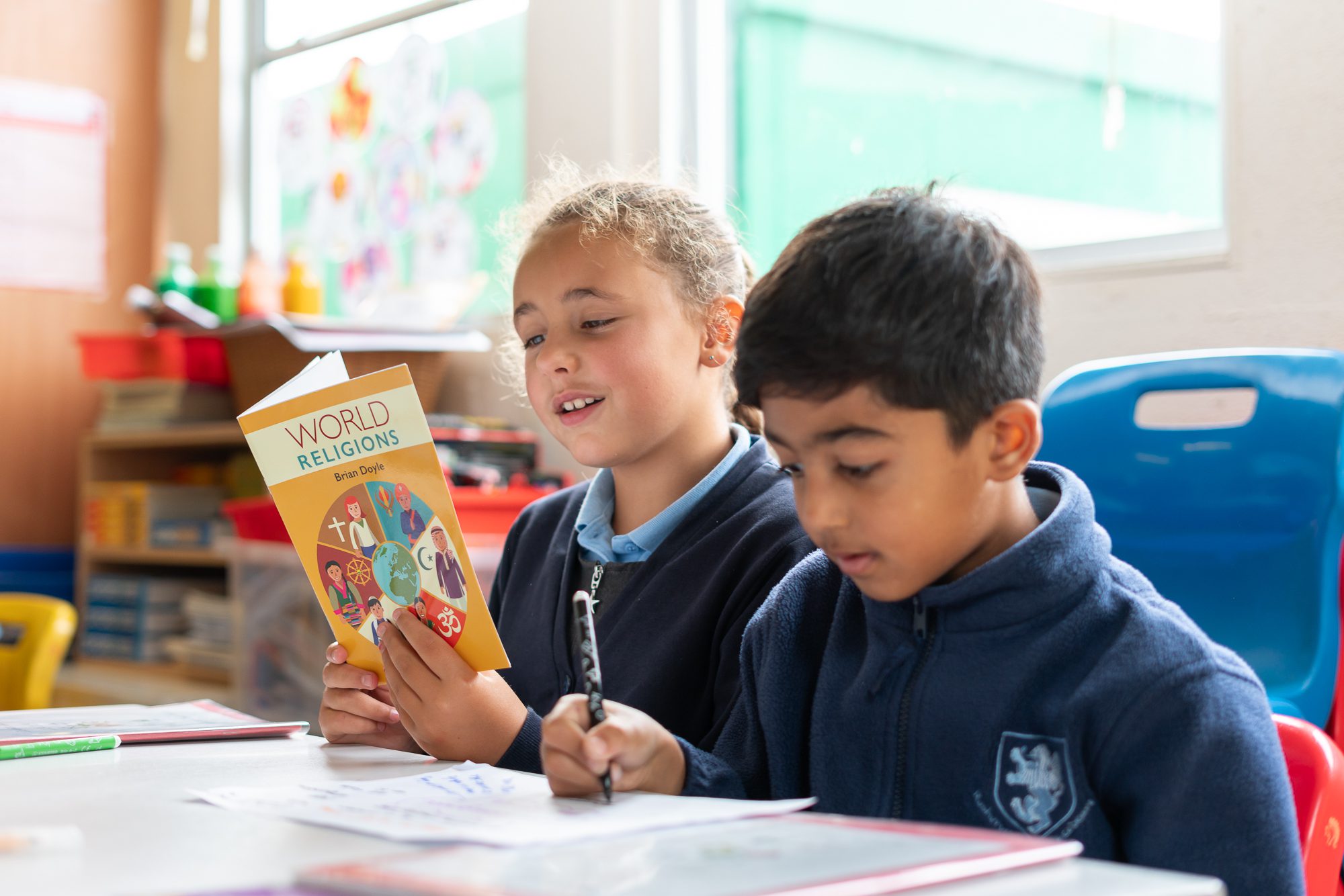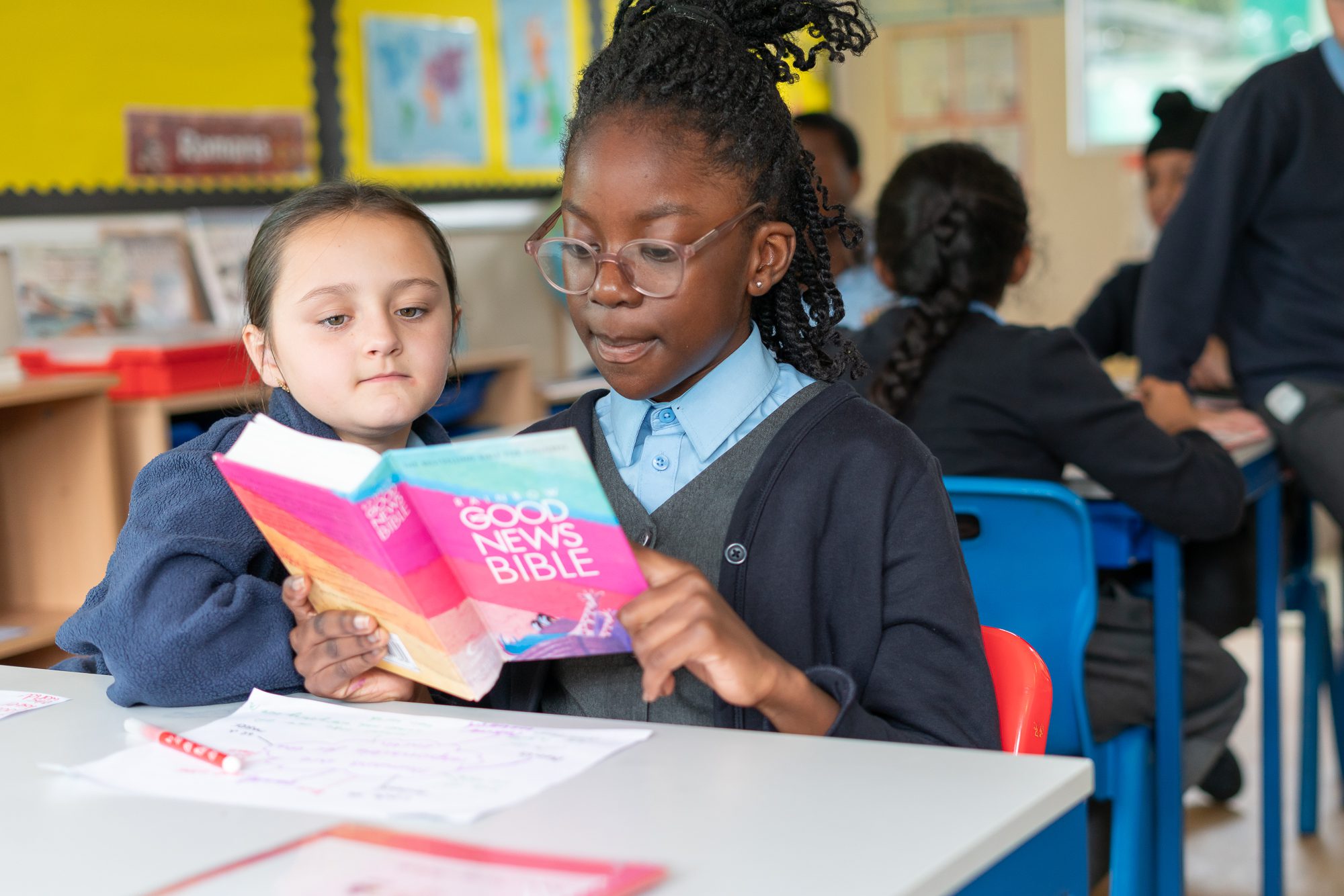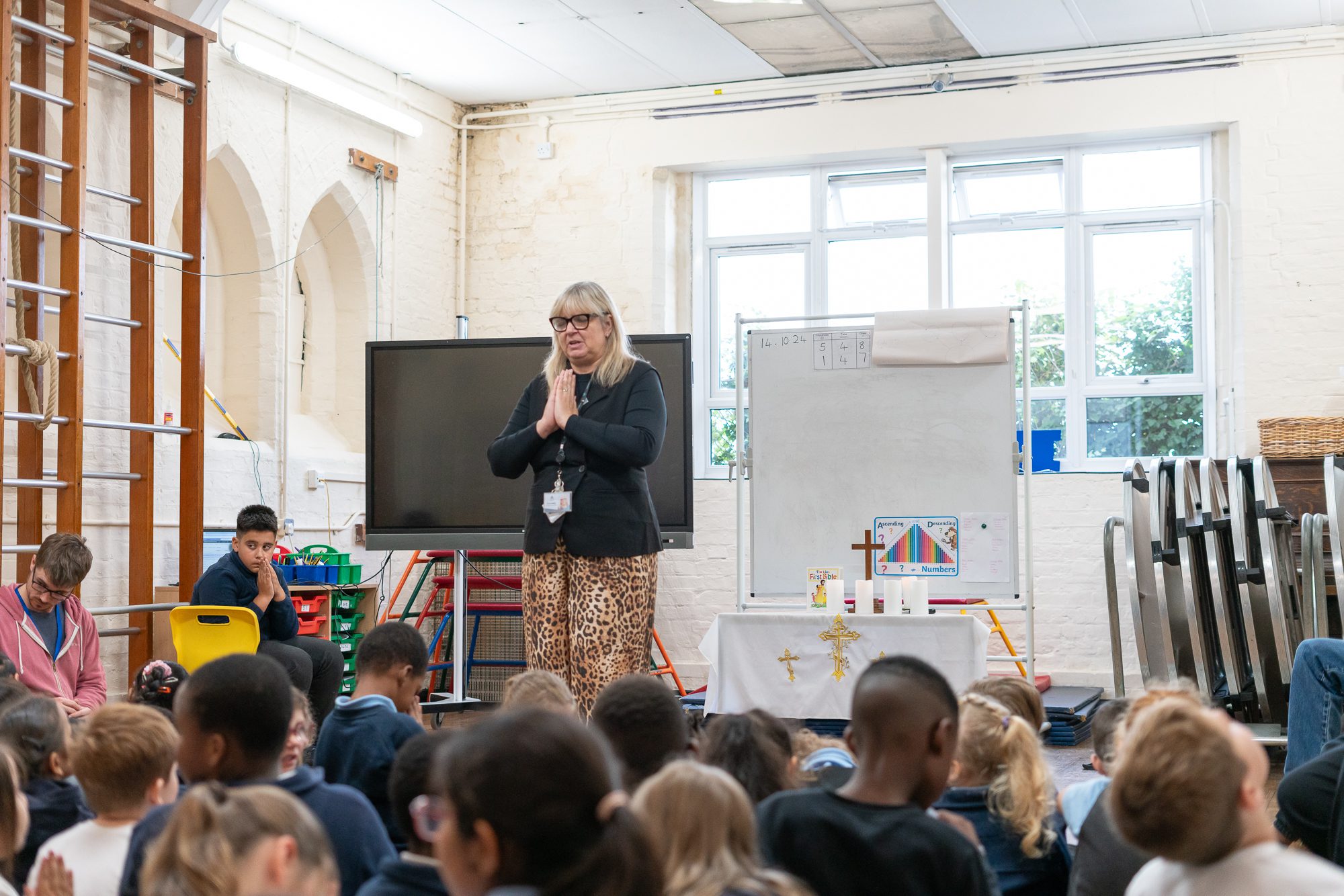Religious Education Subject Leader: Mrs S Burrha
Rosherville Church of England Primary Academy will provide a high-quality Religious education curriculum that recognises and reflects all pupils’ beliefs and practices. Our curriculum is designed to reflect the guidance of the Kent Agreed syllabus.
Intent
At Rosherville, we believe it is important for all our pupils to learn from and about religion, so that they can understand the world around them. The aim of Religious Education in our school is to help children to acquire a better understanding of Christianity and other world faiths. Religious Education seeks to make a major contribution to the spiritual, moral, social and cultural (SMSC) development of all pupils. It helps pupils acquire a knowledge and understanding of major world religions, an appreciation of ultimate questions and responses to them and develop their own beliefs and values.
We shall help our pupils prepare for their future by:
- Developing awareness of the fundamental questions raised by human experiences, and of how religious teachings can relate to them;
- Responding to such questions by referring to the teachings and practices of religions and other belief systems, relating them to their own understanding and experience;
- Reflecting on their own beliefs, values and experiences in the light of their study.


Implementation
RE is taught in accordance with Understanding Christianity (2016). The main focus is mainly on Christianity, whilst taking into account the other principal religions in Great Britain. We deliver the Understanding Christianity with support from the Rochester Diocesan, which includes aspects of Judaism, Islam, Hinduism and Sikhism. In addition, assemblies take place across the whole school and in classes; these are delivered by senior leaders, class teachers and our local vicar.
The key purpose of Understanding Christianity is to support pupils in developing their understanding of Christianity as a contribution to their understanding of the world and their own experience within it. The three themes of Making sense of Text, Understanding the Impact and Making Connections are the underlying pedagogy covered across eight key concepts that are built upon as the children progress from the Early Years Foundation Stage to Upper Key Stage 2. The eight key concepts are God, Creation, Fall, People of God, Incarnation, Gospel, Salvation and Kingdom of God.
Visits to places of worship, and visitors representing different religions provide a variety of first-hand experiences for our children, to spark their interest and relate new learning to their own experiences.
Impact
Through their R.E. learning, the children are able
- to make links between their own lives and those of others in their community and in the wider world
- develop an understanding of other people’s cultures and ways of life
- extend their knowledge and understanding of religions and beliefs
- develop a religious vocabulary and interpret religious symbolism in a variety of forms
- reflect on questions of meaning, offering their own thoughtful and informed insights

Religious Education in Each Stage
In EYFS, pupils start their journey of Religious Education through an induction into world faiths. We spend 50 minutes a week exploring the stories of the New and Old Testament, understanding why Easter is special and visiting a place of Worship.
In KS1, pupils will spend an average of an hour a week learning about Christianity, Judaism and Islam. They will get the opportunity to explore the Bible, visit an Islamic Mosque and meet a Rabbi from the local Jewish community.
In KS2, pupils will express ideas and insights about the significant impact of religions and worldviews. Pupils will expand their knowledge of Christianity, Judaism and Islam taught from years 1 and 2, as well as broaden their understanding of Sikhism and Hinduism. Pupils will get the opportunity to visit a Gurdwara, a Cathedral and a Synagogue.
Religious Education Curriculum Documents
SEND Information
Our SEND pupils are supported through our RE curriculum.

